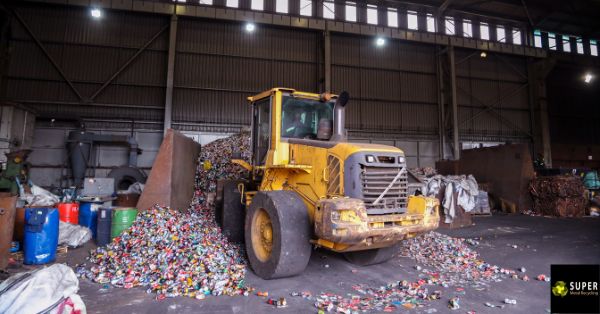Recycling scrap metal is not only an eco-friendly practice but also a regulated industry in Melbourne. Understanding the rules and regulations governing scrap metal recycling is essential to ensure compliance, protect the environment, and contribute to the city’s sustainability goals. In this blog, we’ll delve into what you need to know about Melbourne’s scrap metal recycling regulations.
1. Licensing and Permits
In Melbourne, scrap metal recycling centers are required to obtain licenses and permits to operate legally. These licenses ensure that recycling facilities adhere to specific safety, environmental, and operational standards. When you visit a recycling center, make sure they are properly licensed, and don’t hesitate to ask for verification.
2. Identification and Documentation
When you bring scrap metal to a recycling center in Melbourne, you’ll likely be asked to provide identification and documentation. This requirement helps deter theft and illegal metal scrapping. Keep a valid form of identification (e.g., driver’s license) handy, as well as any relevant documentation for the items you’re recycling.
3. Prohibited Materials
Melbourne’s scrap metal recycling regulations include a list of prohibited materials. These typically include items that may contain hazardous substances or pose environmental risks if not handled properly. Commonly prohibited materials may include radioactive metals, asbestos-containing items, and explosives. Always check with the recycling center to ensure they accept the materials you intend to recycle.
4. Reporting Stolen Metals
In an effort to combat metal theft, Melbourne has established reporting requirements for recycling centers. If a recycling center receives materials suspected to be stolen, they are obligated to report it to law enforcement authorities. This regulation helps deter thieves from attempting to sell stolen scrap metal.
5. Record-Keeping
Recycling centers in Melbourne are required to maintain detailed records of all transactions. This includes information about the seller, the materials received, and the transaction details. These records are crucial for tracking the source of materials and ensuring compliance with regulations.
6. Environmental Compliance
Melbourne’s scrap metal recycling regulations also focus on environmental protection. Recycling centers are typically required to manage hazardous materials properly, prevent pollution, and adhere to waste disposal regulations. Compliance with these environmental standards ensures that recycling centers operate responsibly and safely.
7. Penalties for Non-Compliance
Non-compliance with Melbourne’s scrap metal recycling regulations can result in penalties, fines, and even the revocation of licenses. It’s essential for recycling centers to follow the rules and for individuals to be aware of the regulations to avoid legal consequences.
Conclusion
Melbourne’s scrap metal recycling regulations are designed to promote responsible recycling practices, protect the environment, and deter illegal activities such as metal theft. By understanding and adhering to these regulations, both recycling centers and individuals can contribute to the city’s sustainability efforts and help ensure that scrap metal recycling remains a positive and eco-friendly practice in Melbourne. When in doubt, consult with your local recycling center or relevant authorities to ensure you are in compliance with all applicable regulations.
If you are at Officer, Victoria 3809, below is the best way to visit us.
Super Metal Recycling
345 Frankston – Dandenong Road, Dandenong South VIC 3175
(03) 9706 4909
* Find us on Google Map


Recent Comments